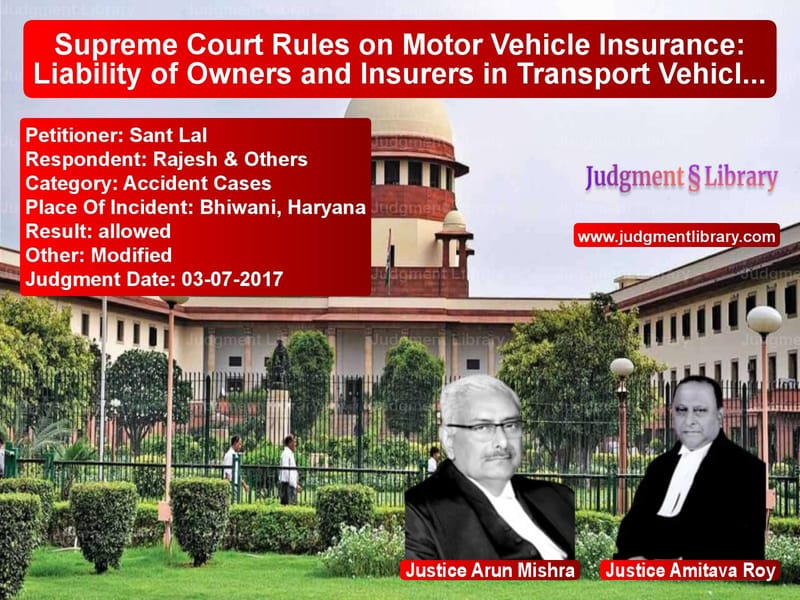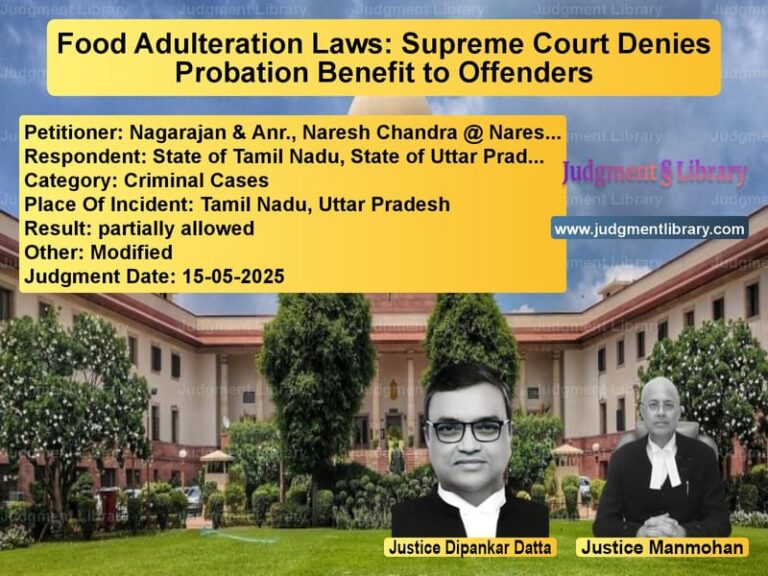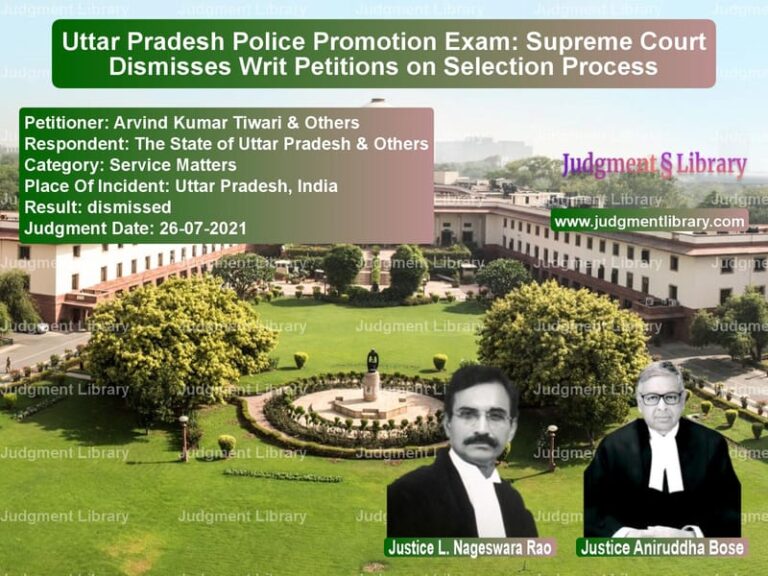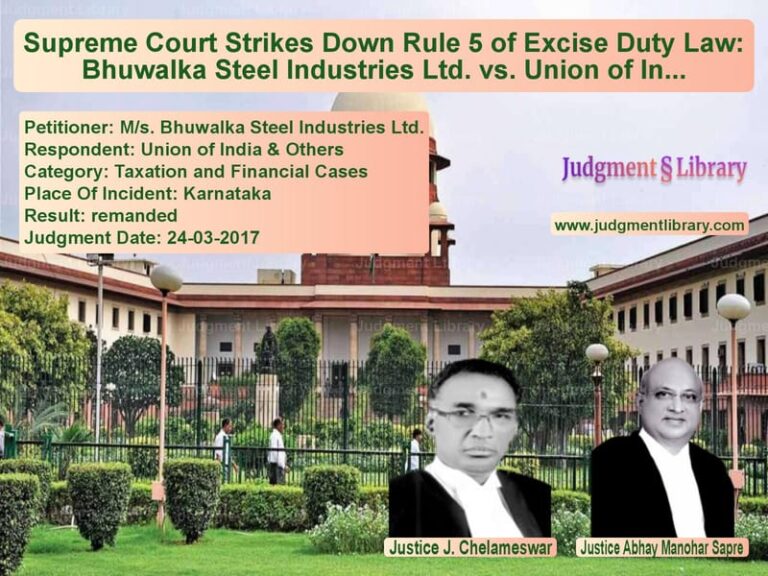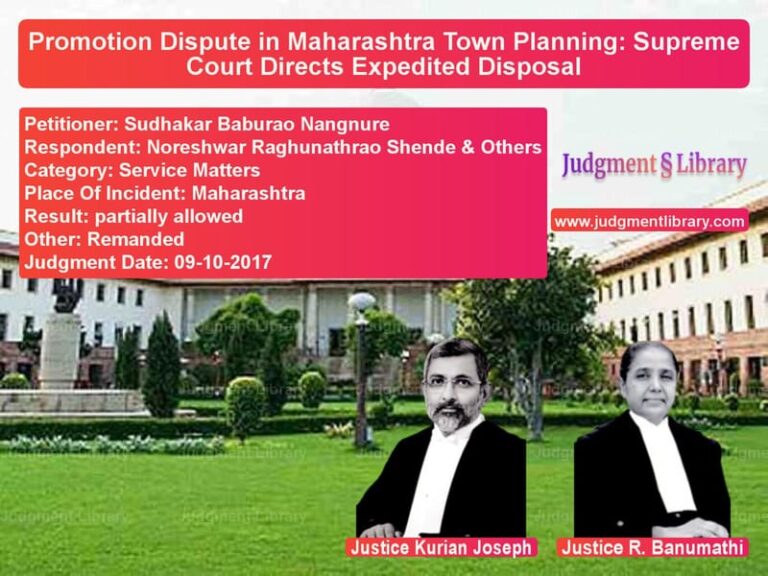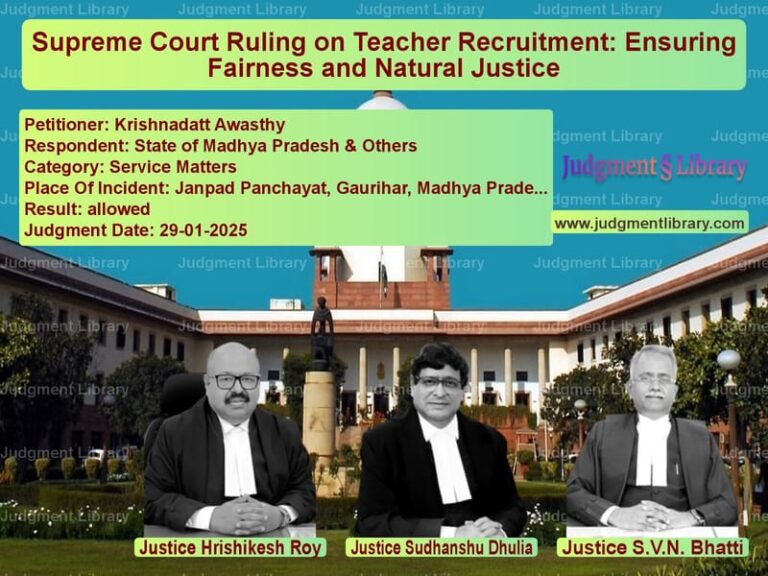Supreme Court Rules on Motor Vehicle Insurance: Liability of Owners and Insurers in Transport Vehicle Cases
The case of Sant Lal v. Rajesh & Others revolves around a motor accident claim and the interpretation of insurance coverage for light motor vehicles (LMVs) used for transport purposes. The dispute arose when the Motor Accident Claims Tribunal (MACT), and subsequently the High Court, held the vehicle owner liable for compensation recovery from the insurance company due to the driver not possessing a separate transport vehicle license. The Supreme Court was called upon to decide whether a separate endorsement for transport vehicles was necessary when the driver already had an LMV license.
Background of the Case
The appellant, Sant Lal, was the owner of a tractor attached to a trolley, used to transport goods. An accident occurred due to the driver’s negligence, leading to a claim before the MACT, Bhiwani. The Tribunal ruled that:
- The driver was licensed to drive motorcycles, scooters, cars, jeeps, and light motor vehicles.
- There was no endorsement on his license allowing him to drive transport vehicles.
- As a result, there was a breach of insurance policy conditions.
- The insurer was ordered to pay compensation but had the right to recover it from the owner.
The High Court upheld the MACT’s decision, reinforcing that the driver was not authorized to drive a transport vehicle and affirming the insurer’s right of recovery from the owner.
Arguments of the Petitioner (Sant Lal, Vehicle Owner)
The petitioner contended:
- The vehicle was a light motor vehicle (LMV), not a heavy goods vehicle.
- Under the Motor Vehicles Act, an LMV license should be sufficient for driving such a vehicle.
- The Tribunal and High Court misinterpreted the requirement for a transport vehicle endorsement.
- The insurer should be held liable without the right of recovery from the owner.
Arguments of the Respondent (Insurance Company)
The insurance company countered:
- A transport vehicle, even if categorized as an LMV, requires a separate endorsement.
- The driver did not possess the requisite authorization.
- Since the driver was unqualified, there was a breach of the insurance contract, allowing the insurer to recover the amount paid.
Supreme Court’s Analysis and Judgment
The Supreme Court, comprising Arun Mishra and Amitava Roy, ruled in favor of the appellant, stating:
1. LMV License is Sufficient for Transport Vehicles Under the Same Category
- The Court referred to its judgment in Mukund Dewangan v. Oriental Insurance Co. Ltd., which clarified that a driver with an LMV license does not need a separate transport vehicle endorsement to drive an LMV-class transport vehicle.
- The vehicle in question, a tractor attached to a trolley, falls under the LMV category.
- Thus, there was no breach of the insurance policy.
2. Insurer Has No Right of Recovery from the Owner
- Since there was no violation of the Motor Vehicles Act, the insurance company must bear full liability.
- The Tribunal’s and High Court’s ruling granting the insurer the right to recover compensation from the owner was set aside.
3. Liability is Joint and Several
- The Court held that the owner, driver, and insurer were jointly and severally liable.
- The insurer could not deny liability on the grounds of a missing transport endorsement.
Final Judgment
- The Supreme Court allowed the appeals.
- The insurer’s right to recover the amount from the owner was set aside.
- The insurance company was held fully liable for compensating the claimants.
Conclusion
This ruling clarifies the scope of LMV licenses for transport vehicles. It ensures that vehicle owners are not unfairly burdened with compensation liabilities when their drivers possess valid LMV licenses. The judgment sets a precedent for future motor accident claims involving insurance recovery disputes.
The Supreme Court’s decision underscores:
- The importance of correctly interpreting driver license requirements under the Motor Vehicles Act.
- That an LMV license covers transport vehicles within the same weight category.
- That insurers cannot deny liability due to procedural technicalities that do not affect safety regulations.
This judgment is significant for vehicle owners, drivers, and insurance companies, ensuring fair application of motor vehicle laws.
Don’t miss out on the full details! Download the complete judgment in PDF format below and gain valuable insights instantly!
Download Judgment: Sant Lal vs Rajesh & Others Supreme Court of India Judgment Dated 03-07-2017.pdf
Direct Downlaod Judgment: Direct downlaod this Judgment
See all petitions in Motor Vehicle Act
See all petitions in Compensation Disputes
See all petitions in Road Accident Cases
See all petitions in Judgment by Arun Mishra
See all petitions in Judgment by Amitava Roy
See all petitions in allowed
See all petitions in Modified
See all petitions in supreme court of India judgments July 2017
See all petitions in 2017 judgments
See all posts in Accident Cases Category
See all allowed petitions in Accident Cases Category
See all Dismissed petitions in Accident Cases Category
See all partially allowed petitions in Accident Cases Category

